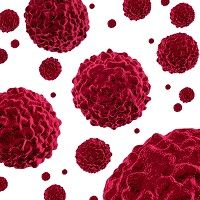Does Androgen-deprivation Therapy Improve Survival Rates in Patients with Prostate Cancer?
Do longer periods of androgen-deprivation therapy significantly improve prostate cancer survival rates or needlessly impair quality of life for recovering patients?

Do longer periods of androgen-deprivation therapy (ADT) significantly improve prostate cancer survival rates or needlessly impair quality of life for recovering patients? A pair of studies presented at American Society for Radiation Oncology’s (ASTRO’s) 56th Annual Meeting offered differing results.
The first study, which enrolled 362 patients at 9 Spanish cancer centers, found that patients who received 28 months of ADT along with high-dose radiation therapy had higher five-year rates of overall survival and biochemical disease-free survival than patients who received just 4 months of ADT.
The second study, which enrolled 561 patients with high-risk prostate cancer, reported no differences in survival rates between patients who received 18 months of ADT and those who received 36 months of treatment, but it did find that patients who received the longer course of treatment subsequently enjoyed significantly lower quality of life.
The patients in the first study all had cT1c - T3aN0M0 prostate cancer with no lymph node involvement, no metastases, no unfavorable risk factors, and prostate specific antigen (PSA) levels of less than 100 ng/ml.
They all received 4 months of ADT, starting before their radiation and continuing slightly afterward. Then, the patients were randomly divided into two groups, one of which received no further treatment and one of which received 24 months of Goserelin, a luteinizing hormone that suppresses testosterone production.
After a median follow-up of 63 months, the 5-year rate of biochemical disease free survival was significantly higher among patients who received the longer course of ADT (89.8% vs. 81.3%, p=0.019). The difference in the 5-year overall survival rates was even higher: 94.8% for those who got 28 months of ADT compared to 86.1% for those who received 4 months of ADT (p=0.009).
“The five-year results of our study show that the combination of high-dose external radiotherapy utilizing new technologies, such as IMRT, VAMT and IGRT, and 28 months of hormone therapy are a very successful combination to achieve positive prostate cancer control,” said lead study author Almudena Zapatero, MD, PhD, in a news release that accompanied publication of the results. Zapatero is a radiation oncologist at Hospital Universitario de la Princesa in Madrid.
Zapatero also said that such therapy provided patients with “good quality of life,” but results from the other study suggest that long courses of ADT significantly reduce quality of life, not only during treatment but afterward as well.
Patients in that trial were randomized between 18 and 36 months of ADT and followed for an average of 84 months by researchers who monitored both raw testosterone levels and overall satisfaction levels as measured by two validated surveys.
At the end of the study period, 55.7% of the patients in the 18-month group but only 44.9% of the patients in the 36-month group had recovered the ability to produce normal levels of testosterone. What’s more, among men in both groups who did eventually recover, recovery took an average of 47.2 months for men who received the shorter course of ADT and 73.2 months for those who received the longer course of treatment.
These chemical differences appeared to translate into psychological differences as well. The study team found statistically significant differences in the responses of 18-month patients and 36-month patients to 26 of the 55 total questions that assessed their quality of life.
“The results of the analysis are not surprising considering the side effects of ADT, and that testosterone recovery has significant impact on patients’ improved quality of life,” said lead author Abdenour Nabid, MD, a radiation oncologist at Centre Hospitalier Universitaire de Sherbrooke and an associate professor at the University of Sherbrooke in Quebec.